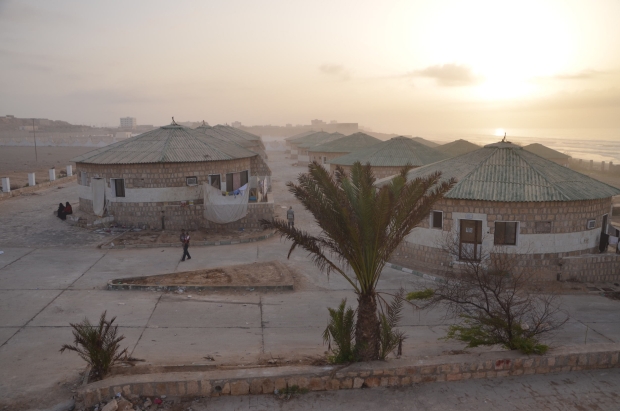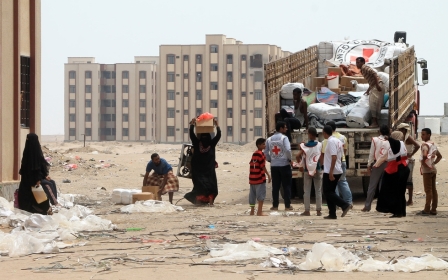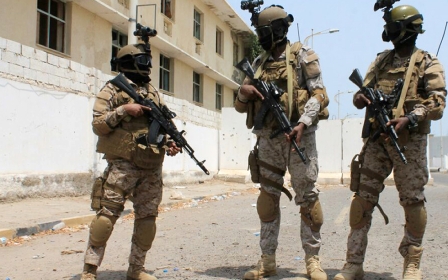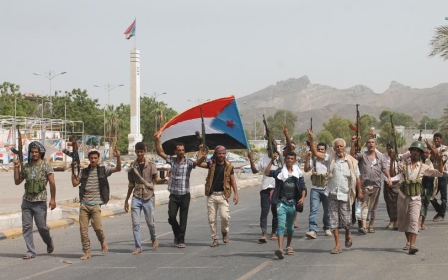Displaced people return to Aden despite destruction
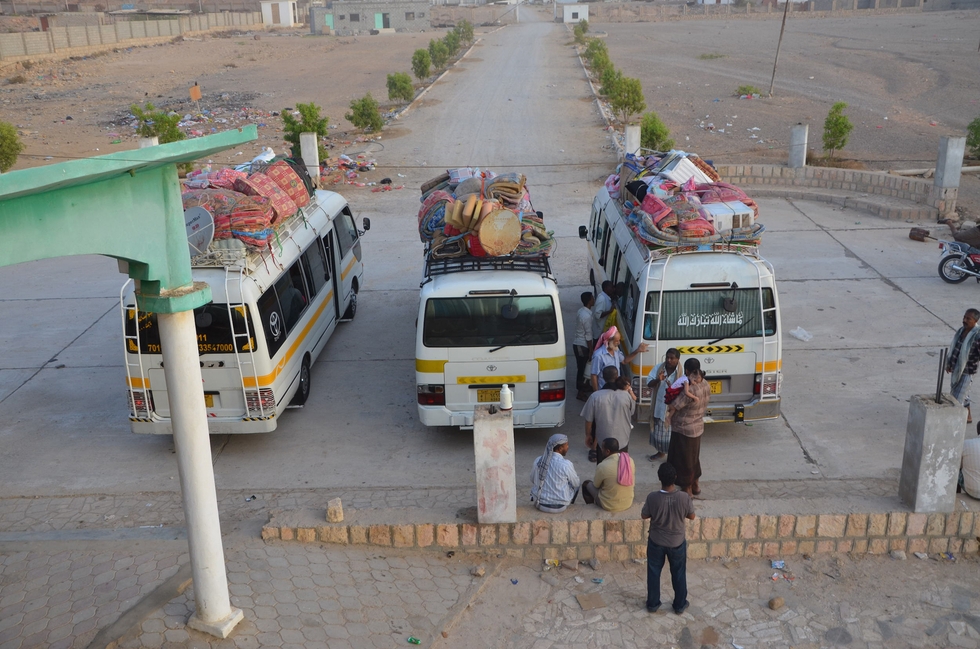
AL-MUKALLA, Yemen - Hassan Yahiya Nasser blinked back tears showing his mixed emotions as he packed his luggage into a bus that would carry him and his family to his town city, the port city of Aden, in south Yemen, after months of living as a displaced person in the southeastern province of Hadramout.
He was among thousands of Aden residents forced to flee when rebel Houthis attacked the strategic port city in March to dislodge President Abd Rabbuh Mansour Hadi. The displaced people mostly took refuge in a few safe places such as Hadramout. Local government officials in Hadramout say that at least 50,000 have fled to the province since March.
Nasser was living in Aden’s Crater district when the bloody clashes erupted. He decided to travel to Mukalla, the capital of Hadramout, as the clashes intensified.
“We could not sleep for days. I first moved to a relative’s house in Sheikh Othman [also in Aden] before fleeing to Hadramout,” he told Middle East Eye.
Now, Nasser said, he is going back to Aden despite being told that his house is partially damaged. “ I am so happy that I will return home,” he said.
Backed by soldiers and heavy weaponry from the United Arab Emirates and Saudi Arabia, anti-Houthis forces turned the tables against the rebels in mid-July and pushed them out of the city after heavy clashes, then chased them and their allied troops to the neighbouring provinces.
Nasser, a retired police officer, said he was forced to sell his TV, a gas cylinder and an air-conditioning unit to cover his travel expenses to Mukalla in March. When he returns he plans to live with his brother-in-law until the city’s reconstruction process kicks off.
Similarly, Adel Mohammed came to Mukalla in June from the coastal city of Shougra, in Abyan province, immediately east of Aden. The father of six children said that he had fled his small city when clashes were on his doorstep.
“While I am happy that I will return home, I am sad that I will leave behind some good friends in Mukalla.”
When the displaced people trickled into Hadramout, which has been partly controlled by Al Qaeda militants since April, NGOs accommodated the newcomers in schools, deserted military buildings and apartments. Nasser and Mohammed along with many others lived in an abandoned chalet complex on the Arabian Sea.
Nasser said: “The NGOs first furnished the chalets and provided us with food rations and pockets money.”
As the violence subsided in Aden, the NGOs told the displaced people that it would transport them by bus back to Aden and would pay for fuel expenses to those who opted to use their cars.
Hadi Omer, who came to Hadramout in April, told MEE that this circle of violence in Aden is the worst in his memory. His family had not left Aden during previous conflicts, such as the 1986 bloody coup in the former South Yemen or the 1994 civil war between former South and North Yemen.
“I and my family stayed for one month without electricity, water or food. To make things worse, there were no salaries.” Omer said.
Abdul Raham Bahourmoz has been responsible for the chalet complex since mid-April. He said the NGOs had spent more than YR7m ($32,558) on renovating the chalets when the displaced people arrived in Hadramout. “We brought back electricity, water and reconditioned the units.”
Little aid
Since the beginning of the influx of the displaced people to the province, local NGOs have complained that the Saudis and the now Riyadh-based Yemen government working there have left them in the lurch to deal with the needy people. Bahourmoz said that his camp, housing 238 people, had received little aid from the King Salman Centre for Relief and Humanitarian Work, which was established during the present crisis to coordinate humanitarian relief efforts in Yemen, and international aid organizations.
“King Salam Centre brought us rations for one month. International organizations have made a survey and vaccination campaign,” he said.
Businessmen from wealthy Gulf nations - mainly Saudi Arabia, fund most of the NGOs here.
Reverse exodus of Africans
As shells landed in their slums in Aden and other provinces in the south, African refugees who have lived in Yemen for ages, also fled to Hadramout. The moment they arrived, local NGOs gave them two choices: live in crowded classrooms or take a free-of-charge voyage to their homeland in the horn of Africa. Thousands of them preferred to head back home.
A local government official, who requested anonymity, said the local charities encouraged the Africans to return home because of the high cost of keeping them here.
“We found out that the cost of keeping the refugees here is higher than sending them home.”
According to Mohammed Saeed, the head of the Somali community in Mukalla, at least 9,000 Somalis have returned home.
New MEE newsletter: Jerusalem Dispatch
Sign up to get the latest insights and analysis on Israel-Palestine, alongside Turkey Unpacked and other MEE newsletters
Middle East Eye delivers independent and unrivalled coverage and analysis of the Middle East, North Africa and beyond. To learn more about republishing this content and the associated fees, please fill out this form. More about MEE can be found here.


